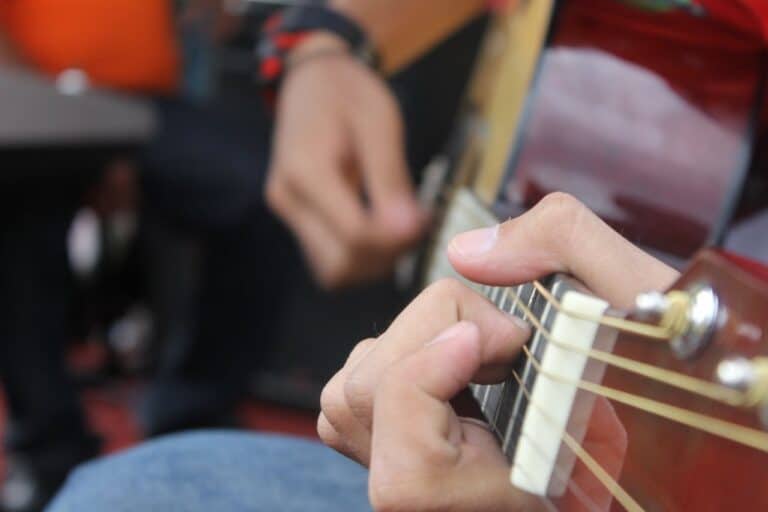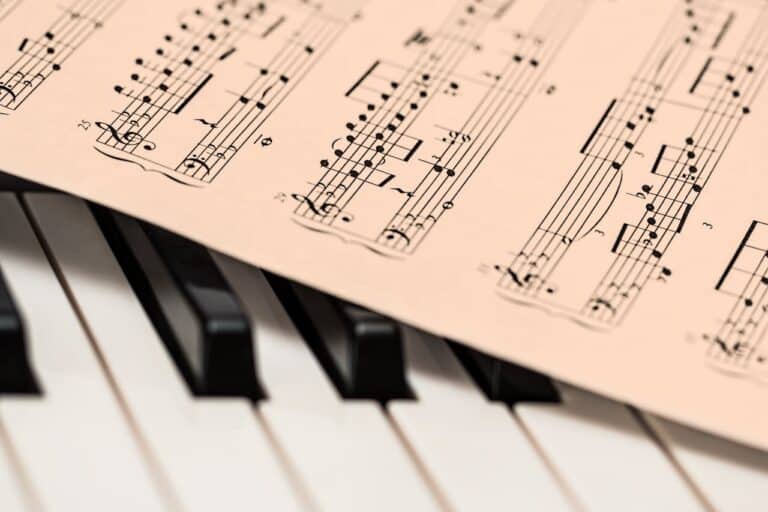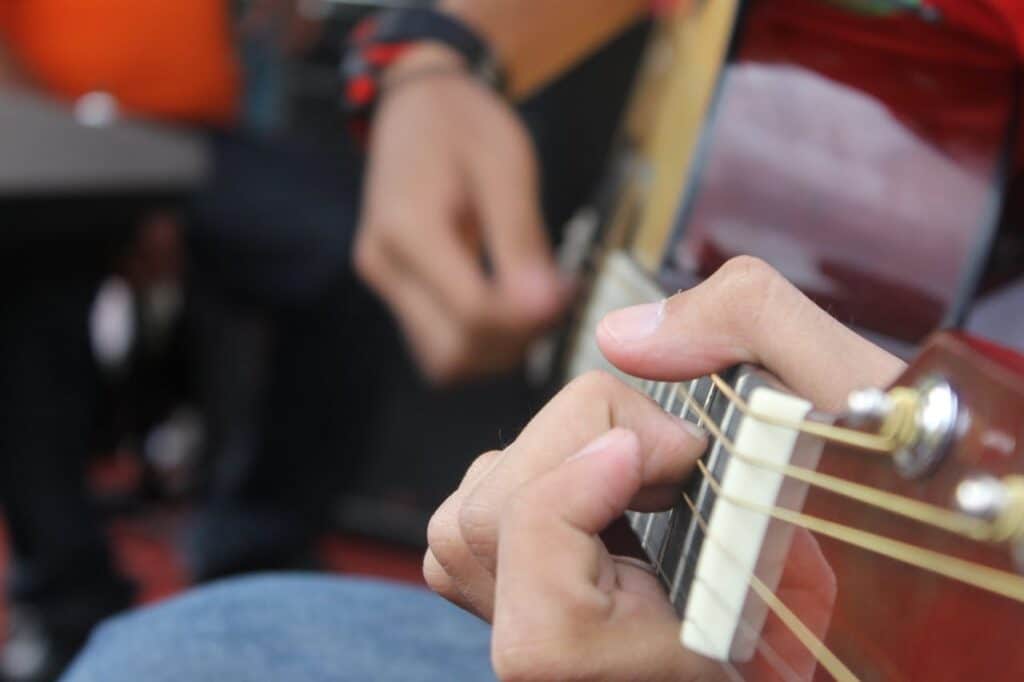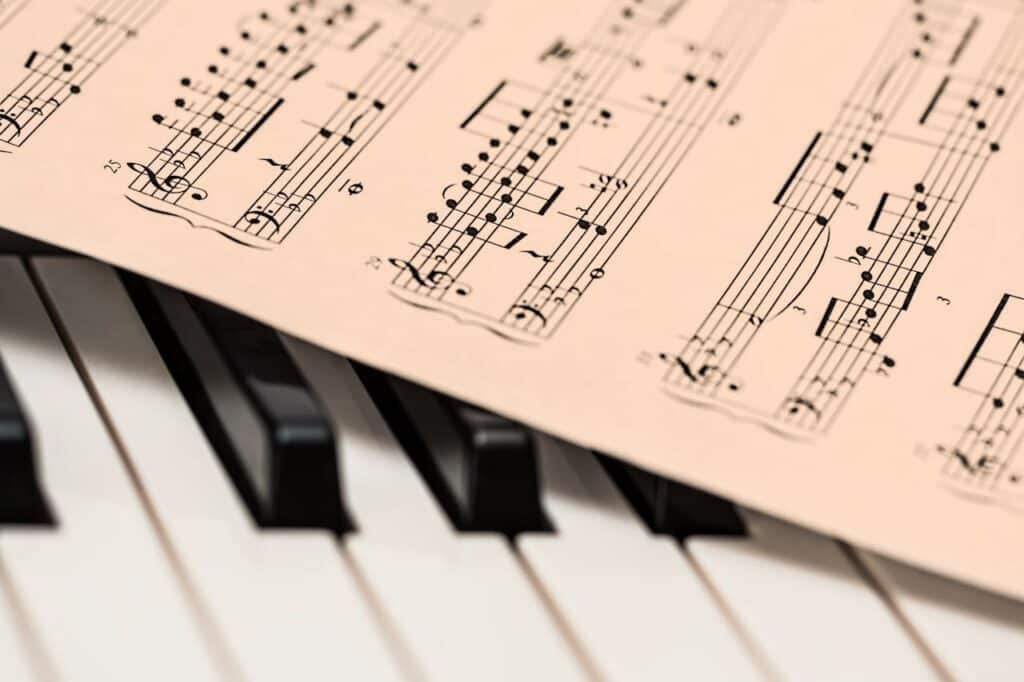When we listen to music, our brain lights up in areas related to emotion, memory, and even movement. Music stimulates the release of neurotransmitters like dopamine and serotonin, chemicals linked to happiness and well-being. This neurological response helps explain why a favorite song can lift our spirits or calm our nerves almost instantly.
In fact, music making activates most areas in our brain more than other activities. This allows music to bypass pathologies or impairments in the brain to achieve healing. When music is used intentionally within a therapeutic relationship, its effects can be even more profound. Music therapy is an evidence-based clinical practice that uses music to help individuals achieve specific goals related to emotional, psychological, cognitive, and social well-being.
Music therapy is more than just listening to relaxing songs—it’s a structured and personalized process led by trained professionals. And it’s making a significant impact on mental health around the world.
What Is Music Therapy?
Music therapy is a professional discipline, facilitated by a credentialed music therapist (such as an MT-BC, LCAT, or equivalent), who uses music-based interventions to address a person’s physical, emotional, cognitive, and social needs. It is used across age groups and clinical populations—from children with developmental differences, adults with depression, trauma, or chronic illness, to older adults with dementia or recovering from a stroke.
Sessions might include:
- Active music-making (e.g., singing, drumming, improvisation)
- Songwriting and lyric exploration
- Music guided imagery
- Movement to music or vocal toning
- Discussion and reflection on emotional responses to music
It’s not about musical talent—it’s about expression, connection, and healing.

Mental Health Benefits of Music Therapy
1. Regulates Emotions and Reduces Anxiety
Music therapy helps clients identify and express complex feelings in a nonverbal way. Through rhythmic drumming, improvisation, or songwriting, individuals can externalize internal emotional experiences—often leading to reduced anxiety, improved mood, and emotional regulation.
📖 A study published in The Arts in Psychotherapy (2017) found that group music therapy significantly reduced anxiety and improved emotional expression in patients with mood disorders.
2. Supports Trauma Recovery
For individuals with trauma histories, talk therapy may feel overwhelming or inaccessible. Music therapy provides a safe, non-verbal space to explore and process difficult emotions, gently reconnecting individuals with their bodies and inner experiences.
🎵 Approaches like clinical improvisation and trauma-informed music therapy are especially helpful for survivors of PTSD, complex trauma, or dissociation.
3. Improves Depression and Increases Motivation
Engaging with music activates brain regions associated with emotions, pleasure and reward. In music therapy, clients may co-create music that reflects their inner world, their hopes and fears, offers an outlet for self-expression and portal to deeper connection and acceptance of the self.
📊 In a 2020 meta-analysis published in JAMA Network Open, music therapy was shown to significantly reduce depressive symptoms when used alongside standard treatments.
4. Enhances Self-Awareness and Insight
Through improvisation, music and imagery, or songwriting, individuals often discover new ways to understand their experiences. Music becomes a mirror for thoughts and emotions that are difficult to articulate, deepening self-awareness, fostering healing and personal growth.
5. Enhances Cognitive Function and Memory
Studies show that music can improve concentration, memory retention, and even learning ability. This is particularly helpful for people coping with mental health conditions that affect cognition, like depression or dementia.
5. Fosters Connection and Social Engagement
Music therapy in group settings builds community and reduces isolation. Whether through ensemble playing, shared listening, or collaborative songwriting, music can create a sense of belonging—especially for those who feel disconnected due to mental health struggles.
Who Can Benefit from Music Therapy?
Music therapy supports people dealing with:
- Depression, anxiety, or mood disorders
- Trauma and PTSD
- Grief and loss
- Autism and neurodivergence
- Chronic illness or pain
- Eating disorders
- Dementia and Alzheimer’s disease
- Substance use and recovery
- Premature infants and their parents
- Postpartum Anxiety and Depression
No musical experience is necessary—just a willingness to explore and engage.
Finding a Music Therapist
If you’re curious about music therapy, look for board-certified or licensed music therapists in your region. In the U.S., the credential to look for is MT-BC (Music Therapist, Board Certified). In Taiwan or other countries, certification titles may vary, but qualified music therapists should have professional training in both music and psychotherapy.
You can also ask therapists about their approach—some may use psychodynamic, trauma-informed, neurologic, or mindfulness-based frameworks depending on your needs.
Final Notes: Healing Through Harmony
Music therapy is a bridge between creativity and care, offering a powerful pathway toward mental well-being. In a world where words often fall short, music gives us a voice, a rhythm, and a relationship that supports healing.
Whether you’re struggling with anxiety, feeling stuck in grief, or searching for a deeper sense of connection—music therapy can help you tune in, express freely, and move forward in harmony with yourself.







